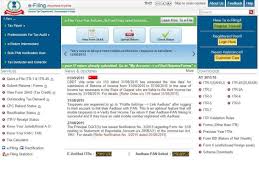 Income Tax officials could soon be at your doorstep if you have deposited a huge amount during the note-swapping exercise last year, and have not yet explained the source of the cash. “We have tried to keep the exercise non-intrusive. But if people have not come forward, then some kind of verification is needed especially in cases that involve deposits of large sums,” a senior income-tax department official told ET.
Income Tax officials could soon be at your doorstep if you have deposited a huge amount during the note-swapping exercise last year, and have not yet explained the source of the cash. “We have tried to keep the exercise non-intrusive. But if people have not come forward, then some kind of verification is needed especially in cases that involve deposits of large sums,” a senior income-tax department official told ET.
Under the ‘Operation Clean Money’, the I-T department had sent out SMSes and e-mails to about 18 lakh people who deposited over Rs 5 lakh each during the 50-day window from November 10 to December 30, because the desposits did not tally with their income.
The depositors were asked by the I-T department to explain the source of the money by logging in to its portal. By February 15, about 7.3 lakh people responded to the emails and explained their deposits.
According to the official, the department is now contemplating issuing notices or carrying out surveys in cases where no response has come or the replies are unsatisfactory.
“In cases where responses are not satisfactory, notices would be issued. In some cases where big sums are involved and response is not satisfactory, surveys could be carried out,” the official said, adding that people could be also asked to come to income-tax offices or tax officers may pay them a visit.
![]() People with unexplained deposits during the demonetisation period have the opportunity to avail the Pradhan Mantri Garib Kalyan Yojana (PMGKY) by paying 50 per cent tax and depositing 25 per cent in non-interest bearing scheme for four years.
People with unexplained deposits during the demonetisation period have the opportunity to avail the Pradhan Mantri Garib Kalyan Yojana (PMGKY) by paying 50 per cent tax and depositing 25 per cent in non-interest bearing scheme for four years.
Incidentally, the I-T department is soon expected to send out the next batch of emails and SMSes, beginning the part two of the ‘Operation Clean Money’, which will target suspicious deposits below Rs 5 lakh identified through data analytics.
The department is examining the voluminous data received from banks on deposits made during the 50-day period. It is also hiring external experts to work on the data to identify splitting of deposits or use of other means to evade notice.
Source: http://economictimes.indiatimes.com/articleshow/57261518.cms






